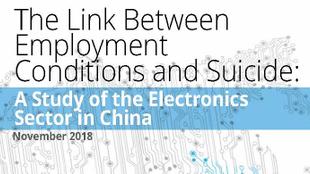
Electronics Watch has released the Public Buyer Toolkit for affiliates
Electronics Watch has developed the Public Buyer Toolkit to support communication and promote contract compliance within its affiliates' supply chains. The Public Buyer Toolkit contains standardized and easy-to-use tools guiding affiliates and their contractors. A strong and harmonised communication process will help Electronics Watch monitor and ensure compliance with affiliates' contract conditions and code of labour standards.














